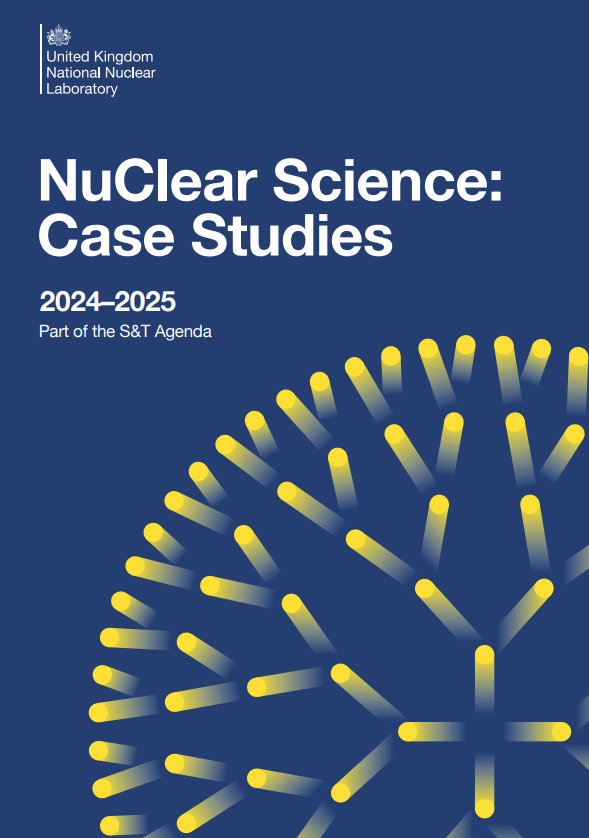Thursday 18 September 2025
Latest Case Study Series Showcases Our Science and Technology Innovations
The United Kingdom National Nuclear Laboratory (UKNNL) has published NuClear Science: Case Studies series 2024-2025, showcasing five outstanding highlights from across our Science and Technology portfolio.
The last year has been pivotal for UKNNL. The Department for Energy Security and Net Zero published its review of the UK’s National Nuclear Laboratory in December 2024 which outlined our mission: to enable and deliver nuclear outcomes for government, and to support growth of the UK nuclear sector. In this series of Case Studies, we’ve highlighted how our Science and Technology Agenda is at the forefront of delivering this critical mission. Across the series, we showcase how we’re pushing the boundaries of science, technology and innovation to support programmes of national importance.
Whilst we could not hope to cover the enormous breadth of projects our teams and collaborators have developed during the past year, this series recognises the impressive areas our experts and partners are contributing to. From innovations in ultrasound for decontamination, to securing a sustainable supply of medical radionuclides, we’re proud that our Science and Technology continues to support the growth of the sector and power the UK’s nuclear future.
This publication series marks a vital continuation of our previous Science and Technology Case Study publications which are also available on our website here.
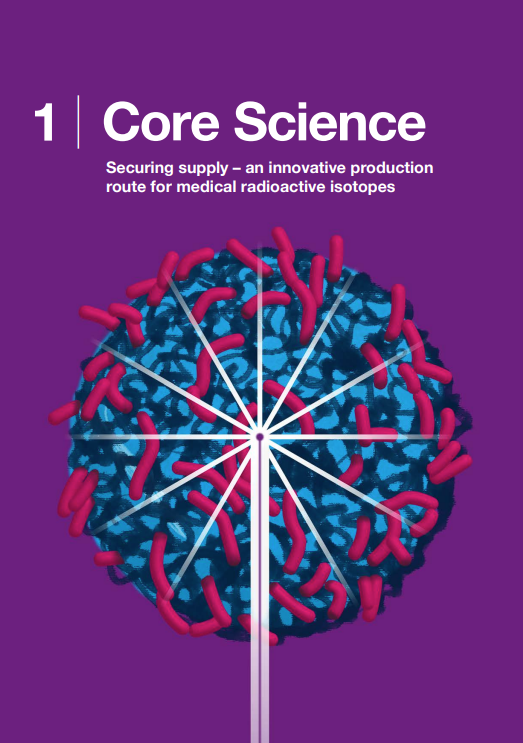
Core Science Securing Supply – an innovative production route for medical radioisotopes
At UKNNL we have paired our innovative research with medical expertise to discover how byproducts from nuclear power can be used in potentially life-saving medicine. Working with the Medicines Discovery Catapult, we are using advanced techniques to separate out useful isotopes from reprocessed uranium. Our work will help to re-establish a UK supply of medical radionuclides and pave the way for research into cancer treatments to help the NHS patients of tomorrow.
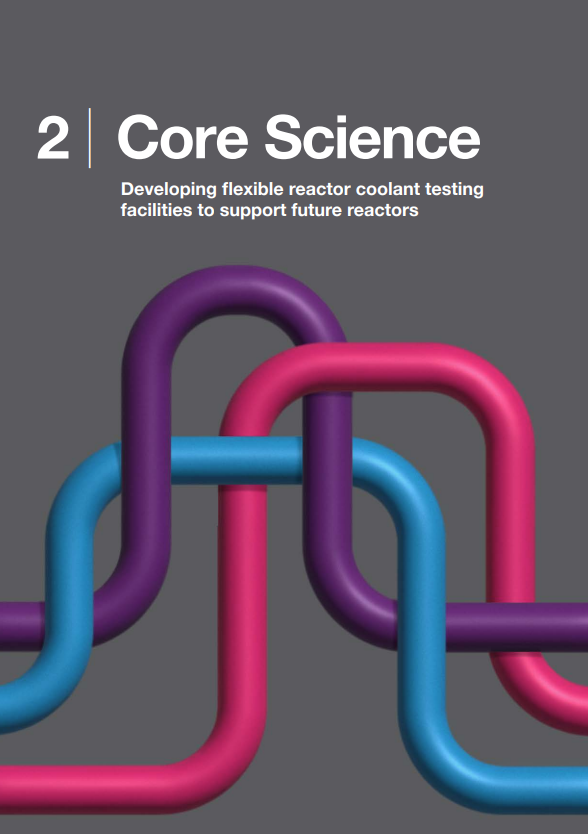
Core Science – Developing flexible reactor coolant testing facilities to support future reactors
Working with EDF and the University of Bristol, we’re developing an innovative testing facility to tell us precisely how materials perform within reactors. This will ensure that existing and future reactors can continue to provide a reliable, sustainable source of clean energy and enable nuclear to be the cornerstone of the global push to net zero.
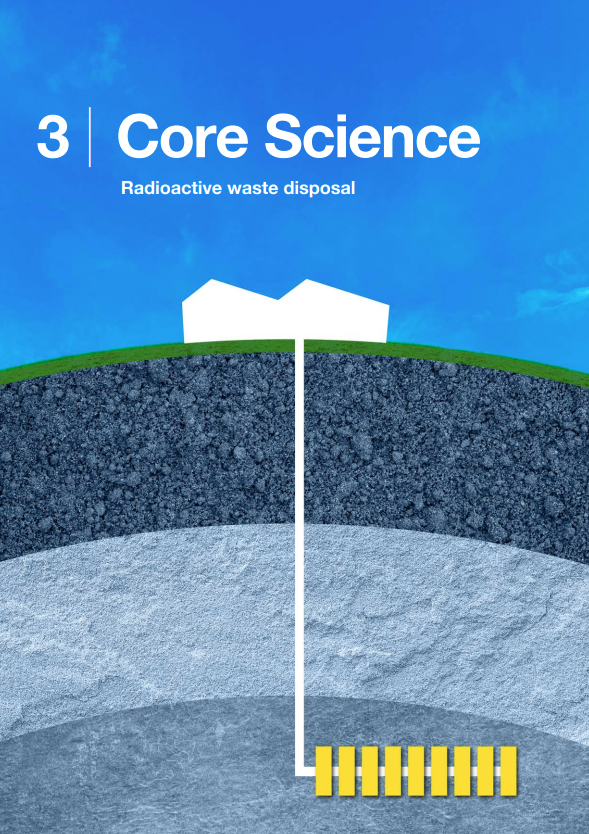
Core Science – Radioactive waste disposal
We are building an independent body of practical nuclear research to support future decisions around the safe, cost-effective and secure disposal of radioactive waste. Our research into the geology and design of a geological disposal facility (GDF) will be key to supporting one of the nation’s largest environmental protection programmes, while our partnerships with universities in this area mean we are also nurturing nuclear skills into the future.
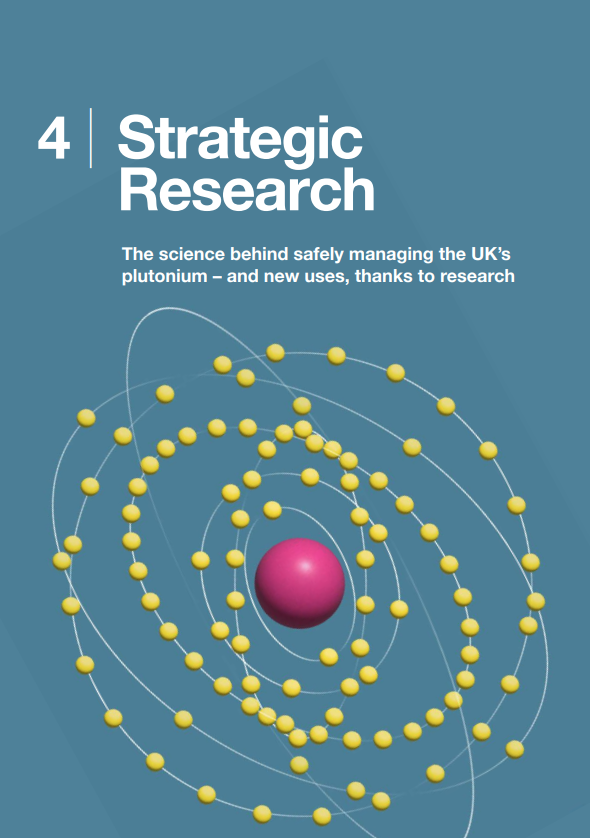
Strategic Research – The science behind safely managing the UK’s plutonium
UKNNL is using unique scientific and technical expertise, collaborating with Sellafield Ltd and the Nuclear Decommissioning Authority, to understand what happens to plutonium during the storage process. As well as helping to deliver the government’s aim of putting plutonium out of reach, our research has led to a breakthrough in finding a new use for a by-product of plutonium’s radioactive decay, providing us with the potential to harness its unique capabilities.
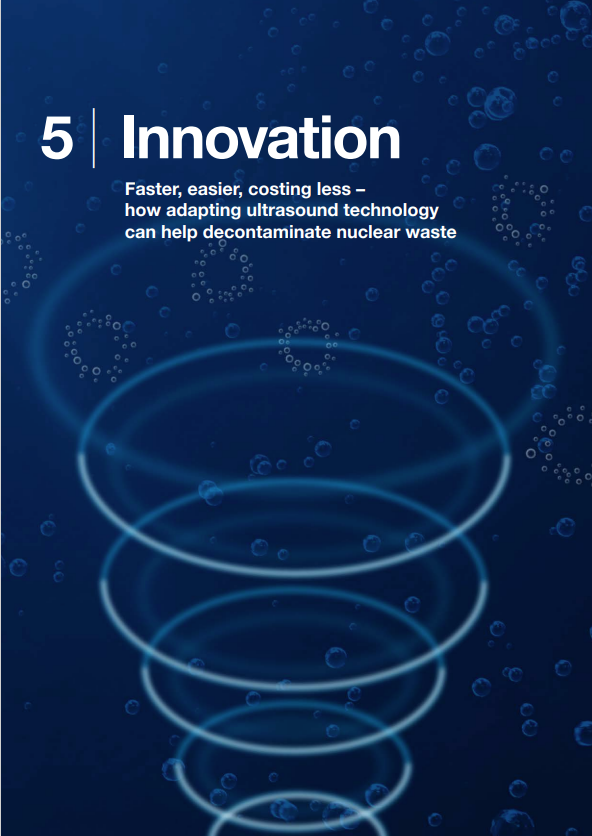
Innovation – Faster, easier, costing less – how adapting ultrasound technology can decontaminate nuclear waste
UKNNL researchers have made a critical breakthrough in adapting existing ultrasound technology and equipment to rapidly decontaminate materials previously classified as radioactive waste. This novel use of ultrasound has shown that waste can be reclassified and recycled through standard channels by applying intense bursts of energy on a small scale to remove deposits from surfaces, decontaminating waste in minutes rather than days.
Gareth Headdock, Chief Science and Technology Officer said:
“As the UK’s national laboratory for fission, our investment in scientific research is fundamental in delivering nuclear outcomes for government and supporting the growth of the sector. As our latest series of case studies highlights, our collaborations with partners are fundamental in underpinning these exciting outcomes and shaping the future of the industry. These case studies shine a light on the expertise that exists within the UK and UKNNL’s contribution to a safe, clean future.”
Paul Nevitt, VP for Science and Technology said:
“I’m really pleased to share the latest series of UKNNL case studies to showcase how our scientific research allows us to innovate and curate the capabilities for us to continue to benefit society through Science and Technology. Over the past several years we have now shared 20 of our standout projects through the NuClear Science case study series to provide an important snapshot of our work. I’m looking forward to sharing more in the years ahead as we move forward with our mission.”

